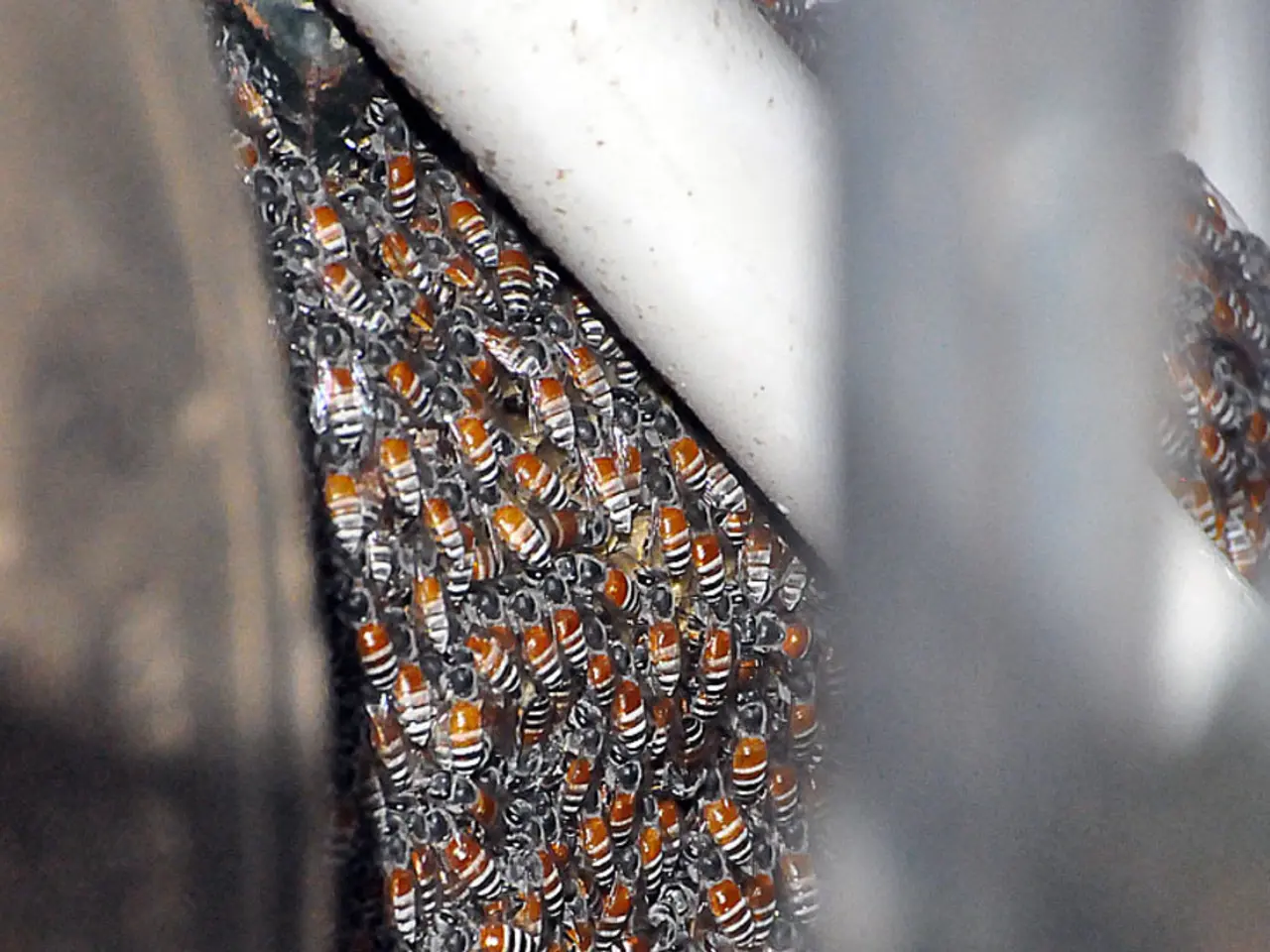Day After Bee Sting Swelling: Information, Treatments, and More Details
A bee sting can be a painful and potentially dangerous experience, especially for those with allergies to bee venom. Here's what you need to know about treating a bee sting at home and when to seek medical help.
If someone experiences a bee sting, the first step is to remove the stinger promptly, using a fingernail or edge of a credit card, avoiding tweezers to prevent squeezing more venom into the skin. After removal, clean the area gently with soap and water to prevent infection.
For initial pain and swelling, applying a cold compress or ice wrapped in a cloth to the sting area for 10-20 minutes multiple times a day can help reduce swelling and pain. Over-the-counter pain relievers such as ibuprofen or acetaminophen can also be used to alleviate pain and reduce inflammation.
To tackle itching, a mild steroid cream like 1% hydrocortisone cream can be applied to the sting site. Oral antihistamines, such as diphenhydramine/Benadryl, can also help reduce itching and swelling caused by the allergic reaction.
For persistent swelling beyond 48 hours, additional home treatments include using hydrocortisone cream or other medicated anti-itch creams, taking oral antihistamines, and using over-the-counter pain relievers. It's important to avoid scratching the sting site to prevent secondary infection.
While some home remedies like vinegar, honey, and baking soda are often suggested for bee stings, there's little scientific evidence to support their effectiveness.
In severe cases, symptoms such as hives, swelling of the face or mouth, wheezing, fast, shallow breathing, a fast heart rate, clammy skin, anxiety or confusion, dizziness, vomiting, blue or white lips, fainting, or loss of consciousness require immediate medical attention. If you notice any of these symptoms, seek emergency medical attention immediately.
For people with existing bee sting allergies, a doctor may perform allergen-specific immunotherapy, also known as desensitization, to prevent a serious allergic reaction in the event of a bee sting. In some cases, a doctor may prescribe topical steroids, oral steroids, or both for an allergic reaction to a bee sting.
Always remember, it's better to err on the side of caution. If you're unsure about the severity of a bee sting or if symptoms worsen or do not improve, consult a healthcare provider. Persistent swelling beyond 48 hours can sometimes indicate a more intense allergic reaction or infection, so medical evaluation is advised if swelling is severe, painful, or accompanied by other systemic symptoms.
Stay safe this summer, and remember, when in doubt, seek medical help.
[1] Mayo Clinic. (2021). Bee sting. [online] Available at: https://www.mayoclinic.org/first-aid/bee-sting/basics/art-20056601
[2] NHS. (2021). What to do if you're stung by a bee or wasp. [online] Available at: https://www.nhs.uk/live-well/healthy-body/what-to-do-if-youre-stung-by-a-bee-or-wasp/
[3] American Academy of Allergy, Asthma & Immunology. (2021). Bee Sting Allergy. [online] Available at: https://www.aaaai.org/conditions-and-treatments/library/allergy-library/bee-sting-allergy
[4] MedlinePlus. (2021). Anaphylaxis. [online] Available at: https://medlineplus.gov/anaphylaxis.html
[5] Cleveland Clinic. (2021). Bee Sting. [online] Available at: https://my.clevelandclinic.org/health/diseases/17100-bee-sting
- For people with diabetes, type 1 or type 2, a bee sting might require extra care due to potential complications, so consulting a healthcare provider beforehand is advisable.
- Individuals with multiple health-and-wellness conditions, such as hepatitis, obesity, depression, or skin-care issues, should also consider seeking medical advice prior to treating a bee sting at home.
- People with allergies to bee venom and anaphylaxis risk should consult their healthcare provider about predictive therapies and treatments, like desensitization or emergency epinephrine auto-injectors.
- Science continues to advance in the field of health-and-wellness, making it crucial to regularly update our understanding of common ailments like bee stings and their treatments.
- Engaging in fitness-and-exercise, mental-health practices, and following a healthy skin-care routine can contribute to a stronger immune system and overall resilience to various ailments.
- It's important for people with allergies to be educated on precautions and appropriate action plans when encountering potential allergens, such as bees, to ensure a safer environment and peace of mind.
- Scientists and healthcare providers are focusing on research and treatments for various allergic conditions, with the goal of improving public health and reducing the medical, emotional, and economic impacts of allergies.
- With a better understanding of home treatments, the importance of consulting healthcare providers, and the importance of prevention strategies, like avoiding high-risk environments for allergic individuals, we can all work together to create a safer and healthier community this summer season.




